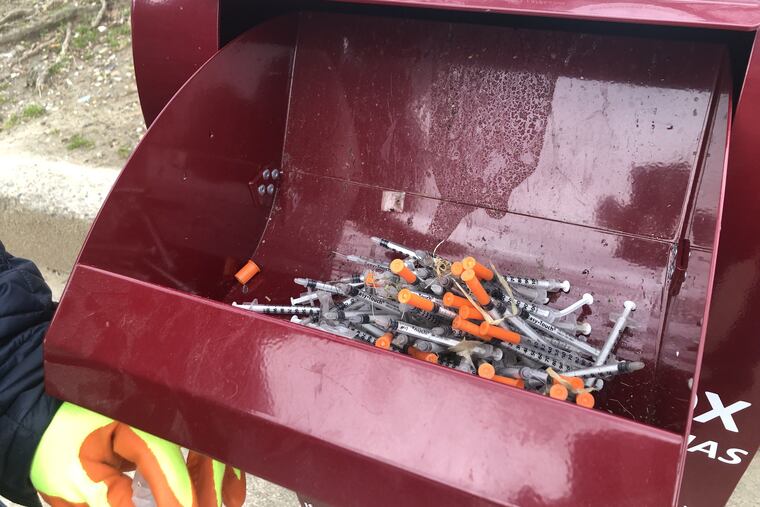In Indiana, Mike Pence responded to HIV too late. The clock is ticking for Pa. Gov. Tom Wolf. | Editorial
Driving HIV infection among people who inject drugs is lack of access to syringes, which forces needle sharing.

This week, the Pennsylvania Department of Health released the 2018 Annual HIV Surveillance Summary report, a yearly review of HIV/AIDS related statistics. The good news is that for the first time since 1985, the number of new HIV in diagnoses in the Commonwealth in a single year dipped below 1,000 to 966 -- 112 fewer new diagnoses compared to 2017.
But there is also bad news: the number of new diagnoses among people who inject drugs has increased from 77 in 2017 to 96 in 2018. That is concerning, especially as Pennsylvania is in the midst of an opioid overdose crisis and the ground is set for an HIV outbreak.
Driving HIV infection among people who inject drugs is lack of access to syringes, which forces needle sharing. There is consensus among Public Health researchers and practitioners -- including the Surgeon General of the U.S. and the deans of schools of Public Health in the commonwealth -- that syringe exchange programs address this problem.
In about half of U.S. states, syringe exchange programs are legal -- but not in Pennsylvania. Although since 2010 anyone in Pennsylvania can purchase a syringe from a pharmacy without a prescription, the distribution of syringes is a crime under state law.
Some ignored this law, which probably explains why there aren’t even more new HIV cases. Philadelphia and Allegheny counties authorized programs locally. Since 2012, the Lancaster Harm Reduction Project has been operating a mobile syringe exchange program in Lancaster — functioning as an open secret. The program has since expanded into Harrisburg and York. But elsewhere in Pennsylvania, syringe access is scarce -- including Crawford, Luzerne, and Cambria Counties, which the Center for Diseases Control identified as among the highest-risk counties for an HIV outbreak in the country.
The risk of an HIV outbreak is not hypothetical. In 2014, an outbreak among people who inject drugs in South Indiana led to 215 infections. The tide turned only when then-Indiana Gov. Mike Pence authorized a temporary syringe exchange. According to a Yale study, had there been a syringe exchange in South Indiana in 2013, the vast majority of the infections would have been prevented.
In the past two legislative sessions in Harrisburg, efforts to enact syringe exchange legislation failed. Pennsylvania Secretary of Health Dr. Rachel Levine says the administration is planning this fall to support legislation that paves the way for syringe exchanges.
But legislation will take months or even years, and syringes are shared daily throughout the commonwealth. Levine’s office argues that an executive action by Wolf can’t override the statute and legislation is the only path forward.
Except we know from the experience of cities like Philadelphia that if a municipality wants to go ahead and open a syringe exchange, the state won’t stand in its way. As the legislative process plays out, that is a message Wolf should push starting today.
In the medical community, Pence is remembered as the governor who did too little too late and enabled an HIV outbreak. Wolf should act quickly on syringe exchanges if he doesn’t want a similar reputation.